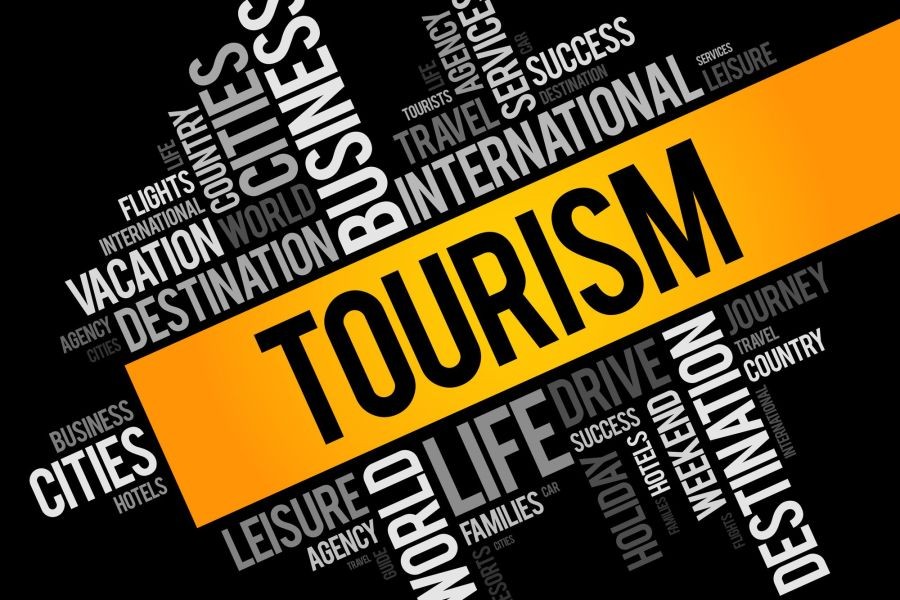Imagine a world where tourism not only brings economic prosperity but also preserves the environment and enriches local communities. This is not just a dream but a reality that New Zealand is striving to achieve through sustainable tourism. As one of the world's most picturesque destinations, New Zealand has embraced sustainable tourism to ensure that its natural beauty and cultural heritage remain intact for future generations. But what does this mean for the local economy, and how are businesses leveraging technology to support this vision?
New Zealand's tourism industry plays a vital role in the country's economy, contributing significantly to GDP and employment. According to the Ministry of Business, Innovation and Employment (MBIE), tourism contributed 5.8% to New Zealand's GDP in 2019. However, the country's reliance on tourism also means it's imperative to adopt sustainable practices to maintain economic stability and environmental integrity. This article explores New Zealand's role in sustainable tourism, backed by expert insights and real-world examples, providing actionable strategies for businesses and policymakers alike.
What’s your take on sustainable tourism in New Zealand? Share your insights below!
Understanding Sustainable Tourism
Sustainable tourism is a holistic approach that seeks to minimize the negative impacts of tourism while maximizing its benefits for local communities and the environment. This involves environmentally friendly practices, social inclusivity, and economic viability. For New Zealand, sustainable tourism is not just a trend but a necessity, given the country's unique biodiversity and indigenous Maori culture.
According to Stats NZ, the tourism sector employs one in every 12 New Zealanders, highlighting its significance in the job market. However, this also underscores the need for sustainable growth practices to ensure long-term employment opportunities and environmental conservation.
Case Study: The Success of Zealandia Ecosanctuary
Problem: Zealandia Ecosanctuary, an urban wildlife sanctuary in Wellington, aimed to preserve native species while attracting tourists. The challenge was to balance conservation efforts with visitor engagement without harming the ecosystem.
Action: Zealandia implemented guided tours using technology-driven educational tools, such as augmented reality apps, to enhance visitor experiences without disturbing wildlife.
Result: The sanctuary saw a 25% increase in visitor numbers and a significant boost in community engagement. Additionally, they successfully reintroduced several native species, contributing to biodiversity conservation.
Takeaway: This case study demonstrates the potential of integrating technology in sustainable tourism to enhance visitor experiences while preserving natural habitats. New Zealand businesses can adopt similar strategies to balance economic growth with environmental stewardship.
Pros and Cons of Sustainable Tourism
As with any industry, sustainable tourism has its advantages and challenges:
✅ Pros:
- Economic Growth: Sustainable tourism can lead to increased revenue and job creation.
- Environmental Protection: Practices such as eco-friendly accommodations and conservation tours help preserve natural resources.
- Cultural Preservation: Promotes the protection of indigenous cultures and traditions.
- Community Empowerment: Involves local communities in decision-making processes, leading to social benefits.
- Long-Term Viability: Ensures the tourism sector remains resilient to future challenges.
❌ Cons:
- Initial Costs: Implementing sustainable practices can require significant upfront investment.
- Complexity: Balancing economic, social, and environmental goals can be challenging.
- Regulatory Compliance: Navigating changing regulations can be time-consuming and costly.
- Market Adaptation: Businesses may need to adapt their offerings to meet sustainable criteria, which can be resource-intensive.
- Perception Issues: Visitors may perceive sustainable tourism as more costly, impacting demand.
Common Myths & Mistakes in Sustainable Tourism
Myth: "Sustainable tourism is only about environmental conservation."
Reality: While environmental conservation is crucial, sustainable tourism also encompasses cultural preservation and economic viability.
Myth: "It's too costly for small businesses."
Reality: Many sustainable practices, such as reducing energy consumption, can lead to cost savings in the long run.
Myth: "Sustainable tourism doesn't attract high-spending tourists."
Reality: A growing number of travelers are willing to pay a premium for eco-friendly and culturally enriching experiences.
Which of these myths did you believe before reading this? Drop your thoughts below!
Future Trends & Predictions in Sustainable Tourism
Looking ahead, sustainable tourism in New Zealand is poised for significant growth, driven by technological innovations and changing consumer preferences. By 2025, it's predicted that 60% of New Zealand's tourism operators will integrate artificial intelligence and data analytics to enhance visitor experiences and improve sustainability practices (Source: Deloitte 2024 Tourism Report).
Additionally, the adoption of smart technology solutions, such as IoT-based monitoring systems and blockchain for transparency in eco-certifications, will become more prevalent. These advancements will enable businesses to optimize resource usage, reduce carbon footprints, and build trust with environmentally conscious travelers.
Conclusion
In conclusion, New Zealand's role in sustainable tourism is not only crucial for preserving its natural and cultural heritage but also for ensuring economic prosperity. By embracing technology and innovative practices, New Zealand can lead the way in sustainable tourism, setting an example for the rest of the world.
Want to stay ahead in sustainable tourism trends? Join our exclusive NZ Tourism Innovations Newsletter to get insider-only insights on upcoming technologies and strategies!
People Also Ask (FAQ)
How does sustainable tourism impact businesses in New Zealand?
Sustainable tourism in New Zealand enhances business reputation, attracts eco-conscious travelers, and leads to long-term growth by ensuring environmental and cultural preservation.
What are the best strategies for implementing sustainable tourism?
Experts recommend starting with community engagement, integrating technology for efficiency, and adhering to eco-certifications to ensure sustainable tourism practices.
Related Search Queries
- Sustainable tourism in New Zealand
- Eco-friendly travel NZ
- Future of tourism in New Zealand
- Technology in NZ tourism
- New Zealand tourism industry trends
- Conservation efforts in NZ tourism
- Economic impact of tourism in NZ
- Maori culture in NZ tourism
- Environmental policies in New Zealand
- Innovations in sustainable travel































